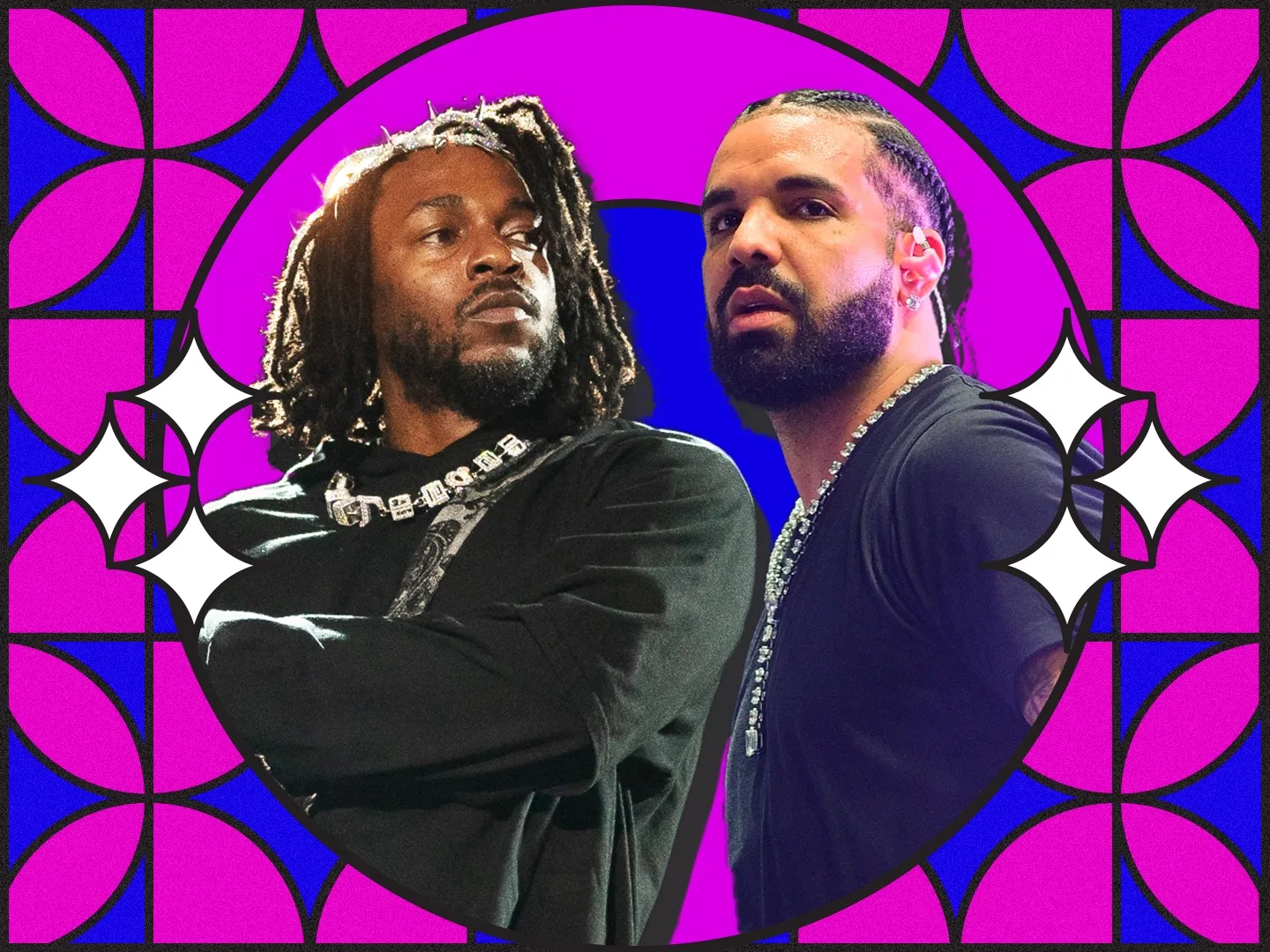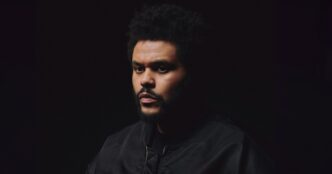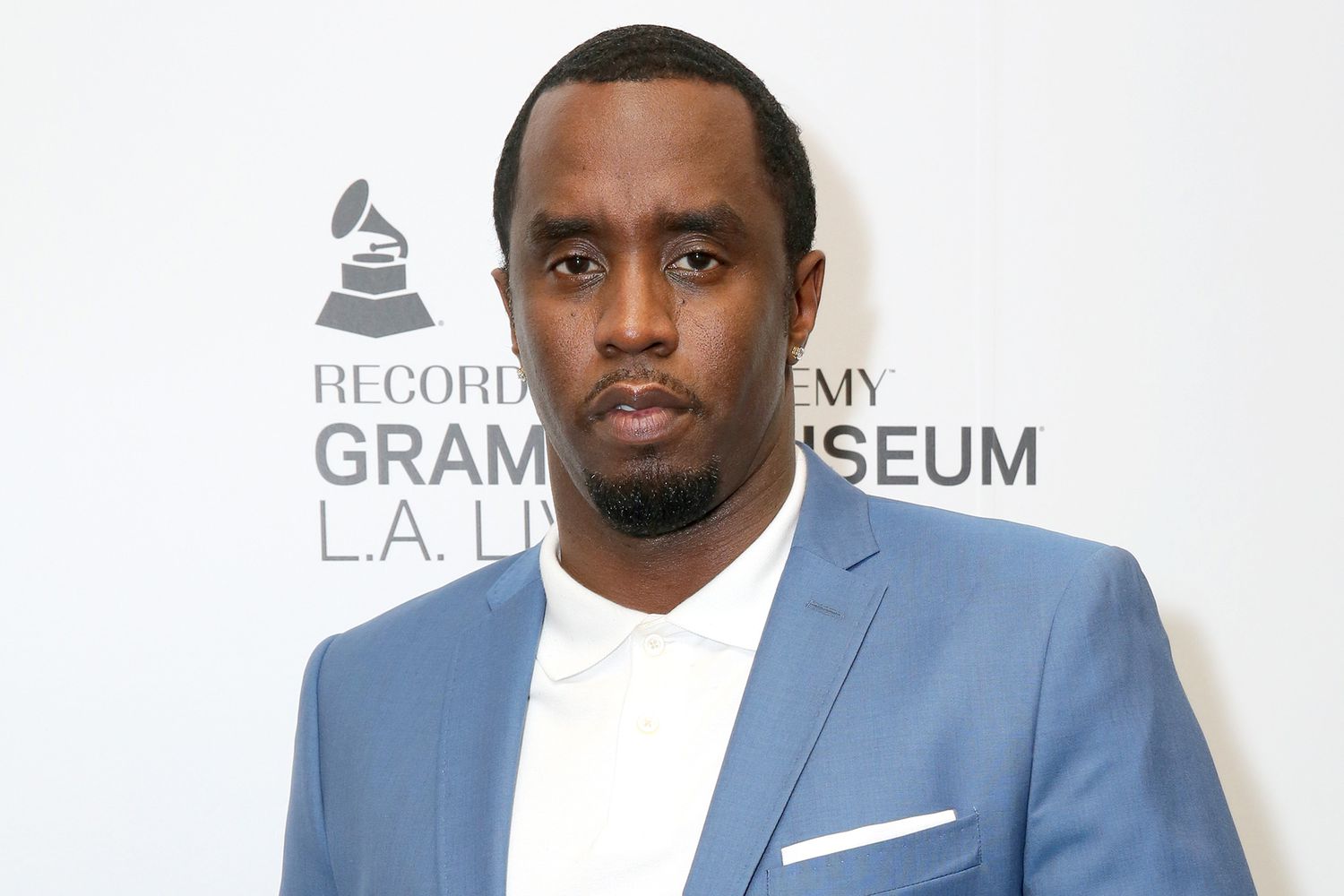Hip-hop, as a genre, has always had artists making big claims, calling themselves the GOAT, roasting, and taking jabs at each other. If you are familiar with the genre, you will know how common this is. Most mean and take it lightheartedly and are good sports about it. Some don’t. Notable ones being Jay-Z vs Nas, The Notorious B.I.G vs Tupac, the culture of big rap feuds was more prominent in the ’90s. In recent years, these disses don’t gain much traction, and if they do, they stay limited within the hip-hop community. Drake himself had multiple feuds with rappers like Pusha T, Megan Thee Stallion, Tyga, Kanye West, and many more. Then what makes Kendrick vs Drake stand out so much that even the most basic pop-hearing person also tuned in to hear what they do next? Or be so popular that it takes over the music chart completely?
The Kendrick vs Drake beef lore was no short of a reality show, except even more entertaining. It had everyone hooked and on the edge of their seat, whether about deciphering the lyrics or seeing how the other person responded. The views skyrocketed minutes after release, and even the Streamers and YouTubers reacting to the songs garnered millions of views. Starting with “Euphoria” and ending with “Not Like Us,” the clubs had everyone on their feet knowing every lyric just hours after it had been released.
While many may think that Drake was silly to pick up a ‘fight’ with Kendrick, considering Kendrick was a Pulitzer-winning lyricist and every one of his albums was both publicly and critically acclaimed, Drake had always been an egoist. His pride was further fueled by his charting hits and a devoted fanbase which he quite monotonously referred to over and over again.
But of course, one could hardly complain as this ego, from both sides, led to one of the most legendary rap battles in hip-hop history which dominated headlines for weeks, sparking a cultural phenomenon unlike anything seen before. Moreover, this was not just a battle between two rappers; it transcended hip-hop and music charts, igniting conversations about wider societal issues.
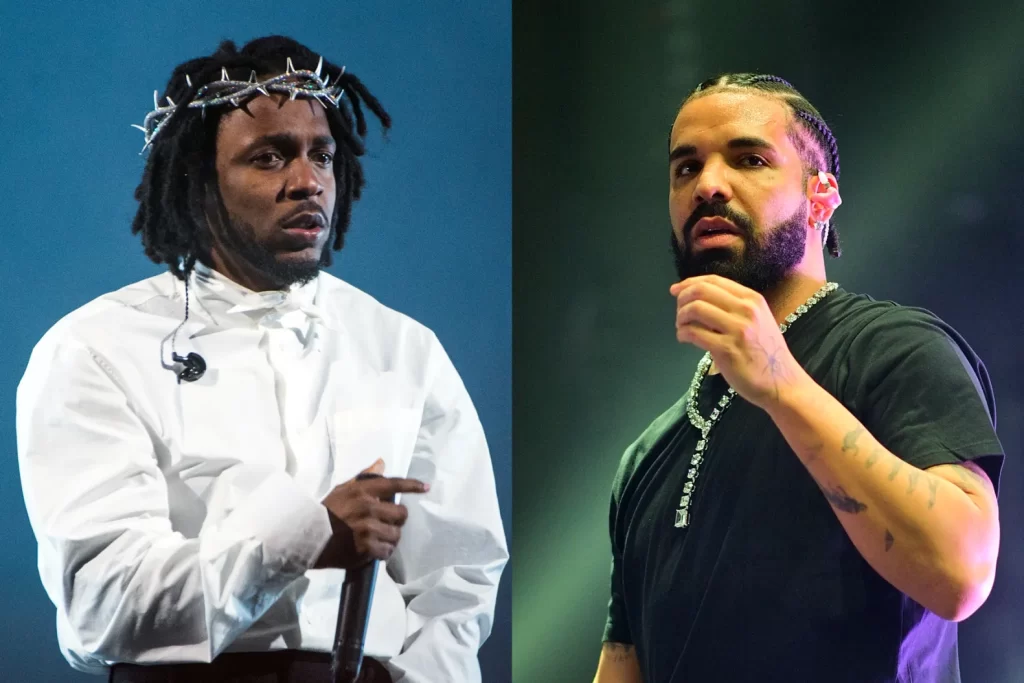
The Kendrick Vs Drake Lore
Drake and Kendrick met over a decade ago in 2011, right after the release of Kendrick’s debut studio album. Kendrick rose to recognition after Drake invited him to be one of his opening artists on his tour. They even collaborated on Kendrick’s album good kid, m.A.A.d city in 2012, and appeared together on ASAP Rocky’s song “F**ing Problems” in the same year. What changed? While Drake was already big in 2011, Kendrick was just starting out. He had things to prove. Hip-hop by nature is competitive and often rappers resort to disses towards other rappers for shock value and to “get people talking.” That was the case for Kendrick in the collaborative song “Control” of 2013 where Kendrick calls out rappers by name saying:
“Pusha T, Meek Millz, A$AP Rocky, Drake, Big Sean, Jay Electron’, Tyler, Mac Miller / I got love for you all, but I’m tryna murder you n****s / Tryna make sure your core fans never heard of you n****s.”
While the other artists took it in stride, Drake was noticeably offended and even hurt at the mention of his name. That was the beginning; then after a few congratulations here and there, Kendrick got really big really fast and gathered critical acclaim for his body of work. With “To Pimp a Butterfly” which had lyrics of African-American history and songs like “Alright” that turned into protest anthems, Kendrick was regarded as an artist of much higher caliber even though Drake was still dominating the charts. His album “DAMN” earned him a Pulitzer which is a first for any singer.
Drake, of course, didn’t take it well. But his frustration was limited in subtle references and jabs towards Kendrick as was the case for Kendrick too. But sh*t hit the fan in 2023 when J. Cole was featured in a Drake song called “First Person Shooter,” where J. Cole says, “Love when they argue the hardest MC. Is it K-Dot? Is it Aubrey (Drake)? Or me?” The long-boiling beef overflowed when Kendrick released “Like That” with Future and Metro Boomin in March 2024, dismissing the idea of a “big three” in rap, claiming, “It’s just big me.”
In response, Drake released two diss tracks, “Push Ups” and “Taylor Made Freestyle” in April. Drake disses Kendrick for his delay in response to Drake’s diss, attributing it to being scared of being overshadowed by Taylor Swift’s album release.
On April 30th, Kendrick released “Euphoria,” where things get a bit more personal. The song sounded like it was fueled by pure unadulterated hatred where Kendrick calls out Drake’s inauthenticity, parenting, and physique. Fast forward three days, Kendrick released “6:16 in LA” showing that he could go back-to-back with Drake. This diss track was produced by none other than Jack Antonoff, the producer for Taylor Swift, a “swift” nod to Drake’s diss that he retaliated with wit.
Kendrick also reveals in the song that the people Drake was paying to find secrets about Kendrick were giving intel to Kendrick. In response to both Lamar tracks, Drake fires back with “Family Matters” on the same day. Here he gets back, alleging Lamar of not being the father of his child and accusing him of domestic abuse. He also released “Buried Alive Parody” on Instagram.
However, his glory was short-lived as Kendrick dropped ‘Meet the Grahams’ within 10 minutes of its release, where he shocks almost every listener by starting the song addressing Adonis, Drake’s son. The shock value only increased with each line having everyone’s jaw dropped. People were live tweeting their reaction to the lines with X user @kwajoo saying:
“the best way i can describe the difference between drakes responses and kendrick’s is that they’re both in a roast battle with a big crowd around them and drake is turning and looking at the crowd for validation after every roast and kendrick is staring directly into his soul”
Unpacking this song will take hours so let’s not get into it now. After Drake’s very mediocre and frankly pathetic attempt at a comeback that mostly was him defending himself with “The Heart Part 6”, the feud ended on 4th May with Kendrick releasing ‘Not Like Us’, the fourth diss track directed at Drake which audiences hailed as his victory lap.
The Battle Royale of Lyrics
The high-profile battle between the two rap titans pushed both Lamar and Drake to new lyrical heights. Drake’s “Always rapping like you bout to get the slaves freed”, while Lamar’s critique of Drake’s biraciality and questionable involvement with black culture, “How many more black features till you finally feel you’re black enough?”, sparked discussions about cultural appropriation in music. “Don’t tell lie about me, I won’t tell truths about you”, at this point we know that Kendrick knows something, but what does he know? He has been in the music industry for 12 years, and now, he has finally stopped holding back.
Kendrick wasn’t playing when he said he is direct and hates sneak dissing after he dropped “Not Like Us” which was a major blow to Drake’s celebrity image. “Certified lover boy, certified pedophile” had people going crazy since its release. Their diss tracks were intricate and packed with wordplay, turning the feud into a lyrical spectacle.
From Rap Beef to International Splash
Both artists made the Billboard Top 10 in the first week of May, with Kendrick Lamar’s “Not Like Us” debuting at number one. ‘Not Like Us’ broke the record for the biggest single-day streams of a hip-hop song on Spotify and reached over 13 million views on YouTube by the morning after its release. The song sold 1 million units in just 12 days, the fastest song to hit the milestone so far in 2024. This song alone beat all the records previously held by Drake. “Number wise, I’m outta here”, this lyric from Drake’s ‘Push Ups’ didn’t age well.
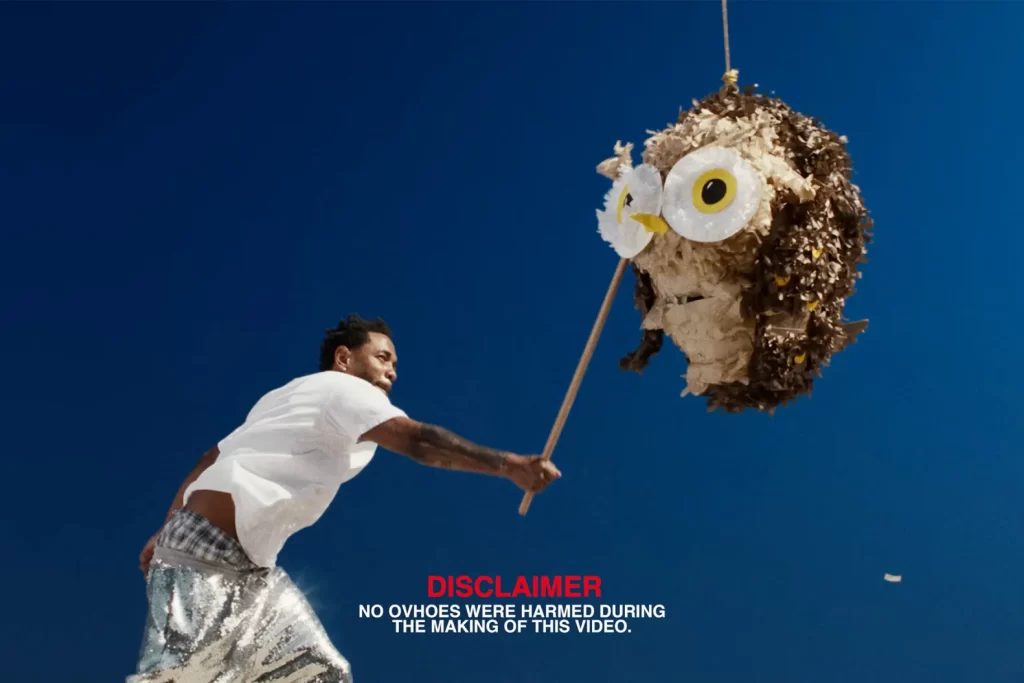
This feud was iconic for many reasons. This rekindled interest in traditional diss rap battles and drew in artists from different generations like Tupac and Snoop Dogg. Lamar’s clear criticisms in the diss tracks, like parenting choices or personal attacks, could lead to bigger conversations about whether we should idolize artists with derogative morals. The deeply personal nature of the disses, including attacks on fatherhood and physical appearance might have been a direct reflection of a traditionally macho genre.
The feud played out heavily on social media, with fans and artists picking sides and fueling the negativity. The impact of social media on artist-to-artist relationships was very noticeable. Drake even revived Tupac in a song using AI which people didn’t take so well based on ethical standards and respect for the dead. He was even accused of using ghostwriters leading to backlash and questioning his credibility. With the animosity between Drake and Lamar, collaborations between them and artists closely associated with them became unlikely. This whole drama highlights the potential for feuds to be a marketing tool within the industry. Kendrick was a marketing genius here as he made his ‘Not Like Us’ copyright-free so all the YouTubers and influencers could freely react to this. His concert was sold out within 10 minutes after just one Instagram post which shows how this feud impacted his fans.
The drama ascended beyond the realms of music as Drake placed a bet on the Canadian football team in the match against Argentina in the Copa America 2024. Upon winning, Argentina posted a picture with the caption ‘Not Like Us’. There have already been numerous memes and reaction videos on the internet about this feud. This song became the number-one hit in Canada, Drake’s home country adding insult to his injury.
The Dark Side of the Feud
The Kendrick and Drake feud was intense, with the diss tracks carrying heavy and serious allegations rather than just petty jabs. While Drake’s disses aimed to undermine Kendrick’s image, Kendrick’s attacks were far more substantial, raising real concerns, particularly around the issues of grooming and misconduct.
In “Meet the Grahams,” Kendrick directly addresses these concerns, specifically pointing out Drake’s alleged predatory behaviour. He calls out Drake not just for his actions but for the broader implications these have on women, forcing listeners to consider the moral implications of their support for these artists. For instance, Kendrick raps, “And we gotta raise our daughters knowin’ there’s predators like him lurkin’ / F*** a rap battle, he should die so all of these women can live with a purpose,” which highlights the severity of the accusations against Drake.
In ‘Not Like Us’ Kendrick doubles on the fact that Drake has been involved with underage girls with his iconic line “You tryna strike a chord, but it’s probably A Minor”. Kendrick also criticized Drake’s parenting and family. This line, along with others, suggests that Kendrick’s criticisms were rooted in genuine concerns about how Drake’s behaviour affects women, rather than simply using misogyny as a weapon.
All these accusations have so far gone without any investigation or cancellation, the audience only responding to it as the biggest rap battle of history. The real question becomes whether these accusations would have been handled with the same level of scrutiny, disbelief, or even dismissal if the artists involved were women instead of men. The intensely personal nature of the disses, with accusations targeting families and past controversies, blurred the line between reality and performance in rap.
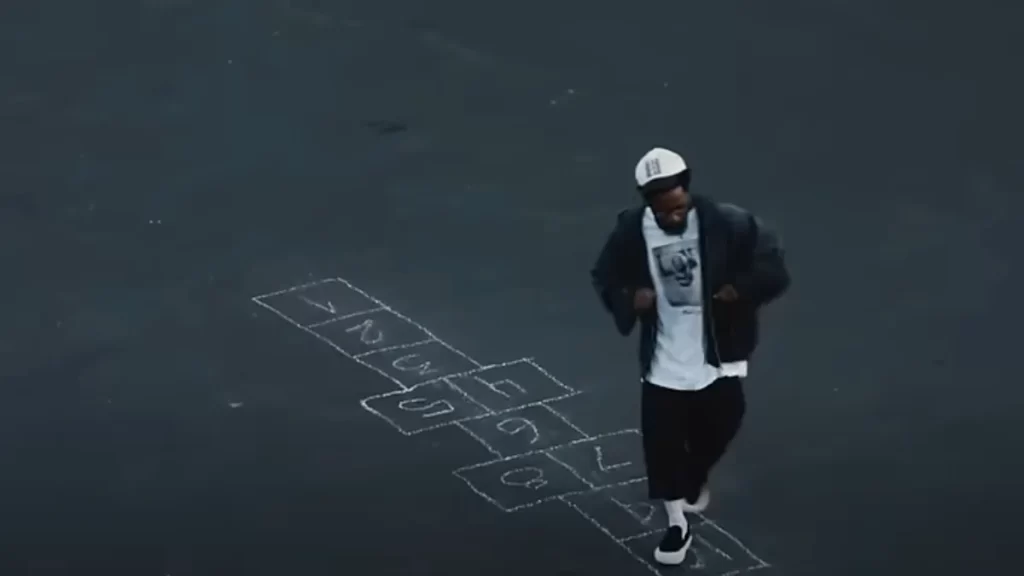
Drake responded to Kendrick saying that all the evidence against him was planted by himself, which has questionable credibility as previously there had been several instances of him hanging out with underage celebrities. He also said that he would be arrested by now if he were to engage in any questionable stuff. But we all know how predators and assaulters, especially males with high influence and power get away with stuff easily. Would Kendrick say this stuff against Drake without enough proof, where defamation lawsuits can destroy his career? That is a question that needs to be considered while questioning either of the artists’ credibility.
The Conclusion
Kendrick outdid all his previous records and put out more hit songs than Drake in this entire beef. While their rivalry dominated headlines, the feud might have opened doors for other rappers. Fans looking for fresh takes on hip-hop might have explored the music of rising stars not involved in the drama. Overall, the feud created a charged atmosphere in the industry, pushing some artists to innovate and potentially hindering future collaborations. The competitive spirit could lead to a new era of technical rapping and creative diss tracks. Looking at all the records and ripple effects of the feud, we can safely say that Kendrick won the battle fair and square and solidified his career as one of the biggest rappers in the industry.
